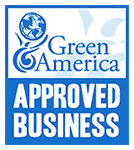FOR IMMEDIATE RELEASE
Saturday, October 8, 2016
For information, contact: James P McMahon 970-259-2171
Ecologist Calls for Effective Education by U.S. EPA on Water Quality Reporting
Jim McMahon comments on recent drinking water news and provides suggestions for federal action.
Brookside, UT – The U.S. Environmental Protection Agency should require water suppliers to supply more information in federally mandated water quality reports, including more details on lead, copper, and unregulated contaminants, ecologist James P.  McMahon urged.
McMahon urged.
The EPA could also do more to increase public use of the reports, McMahon said, in light of recent revelations concerning the safety of public water supplies.
“EPA requires water suppliers, whether private or public, to provide a water quality report (aka consumer confidence report) to all of their customers. These are generally mailed out once each year in July and available online year round. These reports are a great tool for consumers to become educated about the risks in their water, however they are rarely used by the public and incomplete in the information they contain,” McMahon said.
Some examples of recent news stories about toxins present in drinking water supplies include:
-
An Environmental Working Group press release suggesting that the carcinogenic metal Chromium 6, or Hexavalent Chromium, is present in the water supplies of 200 million Americans at levels that may be unsafe: http://www.ewg.org/research/chromium-six-found-in-us-tap-water?inlist=Y&utm_source=201609Chrom6News&utm_medium=email&utm_campaign=201609Chrom6News
-
A study suggesting that nitrates in drinking water at levels significantly below the EPA allowable amount cause bladder cancer in post menopausal women: http://ehp.niehs.nih.gov/ehp191/ (link is now dead)
-
The carcinogenic chemical Trichloropropane (1,2,3-TCP) has been known to exist in some groundwater sources since the early 1990s. However it is yet to be regulated: http://www.waterboards.ca.gov/drinking_water/certlic/drinkingwater/123TCP.shtml
-
Several studies have shown pharmaceuticals to be present in the water of some 41 million Americans, probably more: http://hosted.ap.org/specials/interactives/pharmawater_site/day1_01.html - link is now dead
-
A USGS study demonstrated the presence of nine unregulated pesticides in Midwestern rivers that also serve as drinking water sources: http://www.science20.com/news_articles/neonicotinoids_found_in_nine_midwest_rivers_usgs_study-141318
-
PFOA, or perfluorooctanoic acid, an ingredient in Teflon, has been found in numerous water sources: http://www.nytimes.com/2016/01/10/magazine/the-lawyer-who-became-duponts-worst-nightmare.html?_r=1
“Consumers are led to believe that if their water meets federal standards then it is safe to drink. However, the fact is that some contaminants may be causing health implications as suggested by independent studies,” added McMahon.
Here is an example of a water quality report from the City of Fresno, CA which suggests that the water is ‘clean and healthy’: http://www.fresno.gov/NR/rdonlyres/E1DC4121-EB84-46B5-812C-9351C60C246C/27439/WaterQuality.pdfNote the list of contaminants and the levels of each one.
Here is a consumer confidence report from Washington, D.C., which draws its water from the Potomac River: 2023_CCR.pdf (dcwater.com) Note that no mention is made of the presence of pharmaceuticals in the water or the fact that bass in the river are often known to display both male and female characteristics: https://www.fws.gov/chesapeakebay/pdf/endocrine.pdf - link is now dead
Some cities, such as Seattle, are fortunate to have protected water sources that consist of snowmelt or rain: http://www.seattle.gov/util/MyServices/Water/Water_Quality/index.htm - page has moved
McMahon suggests the following changes to EPA’s oversight of drinking water and the consumer confidence reports provided to the public:
-
Establish mandatory education programs for water treatment plant managers about the possible hazards of contaminants in water including certain unregulated contaminants on EPA’s list of ‘Emerging Contaminants’.
-
In the section of each water report describing the source of a water supply include information on whether there are sewage treatment discharges, agricultural runoff, or other significant pollution sources upstream and what this may imply for consumers. Require this section to be specific to the water source. There’s already language in the ‘Source Water Assessment’ section but it is written in bureaucratese and it’s too generic.
-
Refrain from making claims that the water is safe or healthy unless that is known to be the case. Instead, make the claim that the drinking water meets ‘current federal standards’.
-
If chloramine is used to disinfect or ammonia is added to the water require that this is clearly stated.
-
Add hardness and total dissolved solids to every report. This is often the only information consumers want to know so it makes the report more useful.
-
Make a clear statement in the section on lead and copper so consumers know how this pertains to them.
-
Develop an extensive public outreach campaign that leads to an increase in the use of local water reports by consumers.
“We have some of the best drinking water in the world. EPA has done an adequate job of developing standards for contaminants (https://www.epa.gov/dwstandardsregulations). The public must be informed that this is a developing science, with greater regulation likely as we learn more. Many of our own actions as a society are having unintended consequences including the contamination of our drinking water with chemicals that may adversely affect public health, many of which are unregulated. It is up to each person or family to protect themselves, as government can only do so much, but in order to make the right decisions the public must have access to accurate and complete information,” McMahon concluded.
XXX
About James P McMahon
James P McMahon is an ecologist and the owner of Sweetwater LLC, which provides custom home water purification systems for the health conscious water consumer. He currently resides in Durango Colorado. He suggests that consumers never buy a water filter without first reviewing their local water quality report. For more information about Jim and Sweetwater LLC, visit www.cleanairpurewater.com.



